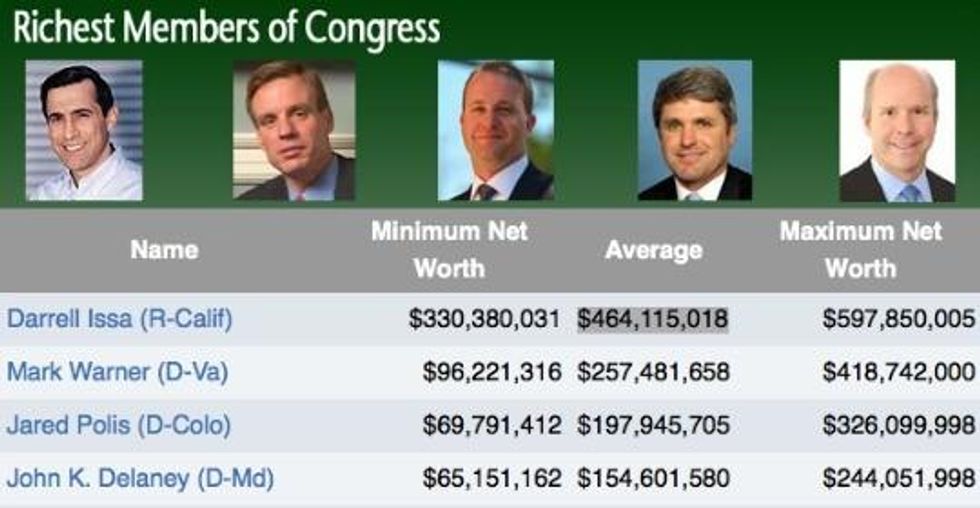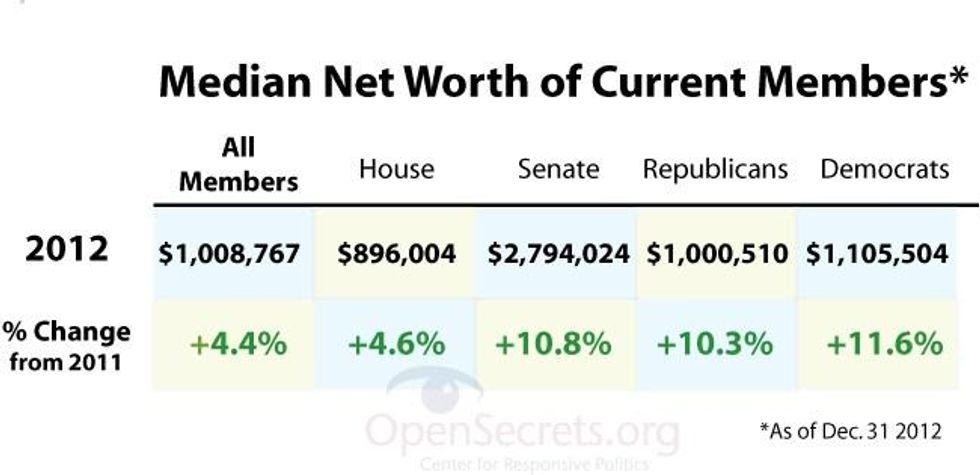For the first time since U.S. lawmakers have been required to publicly disclose their personal financial data, millionaires now make up the majority of seats in the Capitol building,
according to a report released Friday by the Center for Responsive Politics.
According to recent data collected by the group, at least 268 U.S. lawmakers out of 534 total had an average net worth of $1 million or more in 2012.
Of those lawmakers, many are worth far more, with the wealthiest, Darrell Issa (R-Calif.), coming in with an average net worth of $464,115,018.
The median for all federal lawmakers came to $1,008,767 -- higher than all previous years on record.
"Members of Congress have long been far wealthier than the typical American, but the fact that now a majority of members -- albeit just a hair over 50 percent -- are millionaires represents a watershed moment at a time when lawmakers are debating issues like unemployment benefits, food stamps and the minimum wage, which affect people with far fewer resources, as well as considering an overhaul of the tax code," the group writes on their Open Secrets blogs.
"It's true that Congress has long been filled with the wealthy," writes Paul Blumenthal at the Huffington Post, "but this millionaire milestone comes as the country faces a growing income inequality gap not seen since the Gilded Age."
Congress faltered this week in an effort to pass a bill that would re-institute emergency long-term jobless benefits for millions of Americans, after those benefits were allowed to expire late last year.
The fate of the bill in the Senate was uncertain as of Friday, and would still face stiff opposition in the House if it makes it that far.
Meanwhile, negotiations over the Farm Bill this week will likely include $9 billion in funding cuts for food stamps through the Supplemental Nutrition Assistance Program (SNAP) over the next decade, gouging essential benefits in at least 800,000 households.
The news that millionaires have literally taken over Congress as the lawmakers fail to make substantial moves to help the country's poorest residents "is so telling," J. Mijin Cha, a senior policy analyst at the liberal think tank Demos, told the Huffington Post.
Drawing a comparison between the ease with which lawmakers are cutting capital gains taxes and the lack in support for raising the federal minimum wage, Cha stated, "If you think about who is impacted by the minimum wage, and the sheer number of people who are impacted by the minimum wage versus capital gains, it just shows that the affluent and money is just dominating our policy."
_______________________


